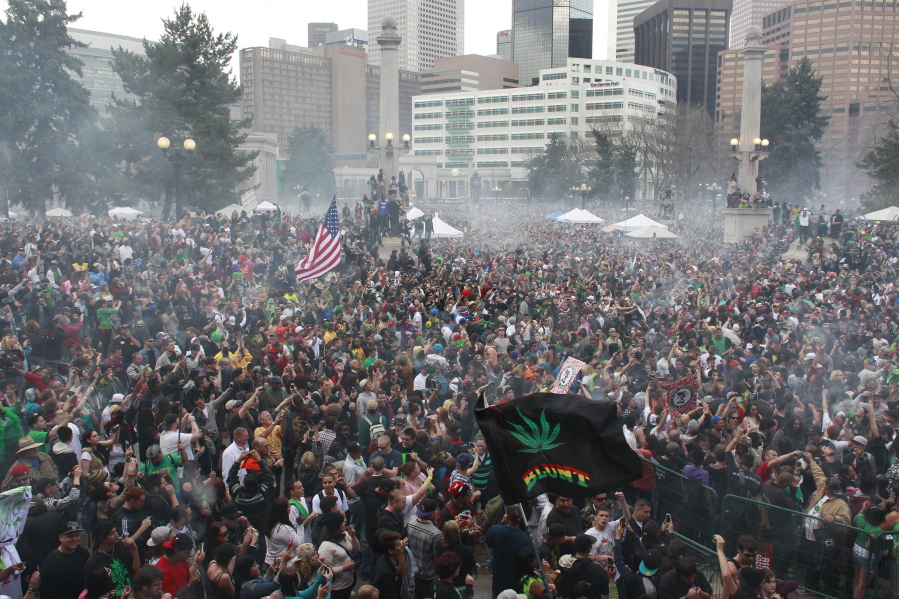DENVER — Increasingly common tools that allow police to conduct real-time social media surveillance during protests are drawing criticism from civil liberties advocates, who oppose the way some departments have quietly unrolled the technology without community input and little public explanation.
Police said services such as Geofeedia, which map, collect and store information from social media posts, are a powerful way to help find crime witnesses, spot problems during large gatherings and gauge community sentiment.
Groups like the American Civil Liberties Union said the software can be easily used to collect information on peaceful protesters or target certain groups. The programs let police gather and record all online posts within specific geographic boundaries, and some allow users to do keyword searches for certain words or hashtags.
Law enforcement agencies have used the services to mine posts on Facebook, Twitter, Instagram, YouTube and other sites during parades, protests and other large events.
One company marketing the technology, Media Sonar, suggested police track hashtags such as ‘BlackLivesMatter’ and ‘imunarmed’, and Geofeedia offered webinars on the ways Baltimore police used its software during protests over the death of Freddie Gray, a response to an ACLU records request showed.
The group’s Colorado chapter requested more information Thursday on how Denver police uses the Geofeedia program, saying the department could be gathering intelligence on law-abiding demonstrators.
The department agreed in 2003 to stop collecting information on protesters not suspected of crimes after the ACLU found it kept thousands of “spy files” on peaceful groups, including a Franciscan nun and Amnesty International. The group sued to keep Denver police from gathering such information without a clear law enforcement purpose.
“Now they’ve bought software that lets them do some of the things they were doing so much easier and at a computer screen,” said Mark Silverstein, the chapter’s legal director.
The Denver Police Department provided documents showing it spent $30,000 from its confiscated property fund for a one-year subscription to Geofeedia. In requesting funding, Lt. William Mitchell said it would be used to monitor large events, including Denver’s annual marijuana rally and Martin Luther King Day parade.
“You are able to see real-time potential threats being made to an event,” Mitchell wrote in the request, adding that the program helped police track down a woman who made social media threats during Super Bowl festivities and assisted in the Boston Marathon bombing investigation. “It has the ability to identify criminal suspects and their actions as they post them to social media.”
It is unclear how many departments nationwide are using such software programs. Police in Baltimore, Seattle and Dallas have used the program. Los Angeles police officials wrote in a 2014 grant application for the software that more than 500 police agencies were already using it.
The software is also used by news organizations and retailers to quickly analyze large amounts of social media.



